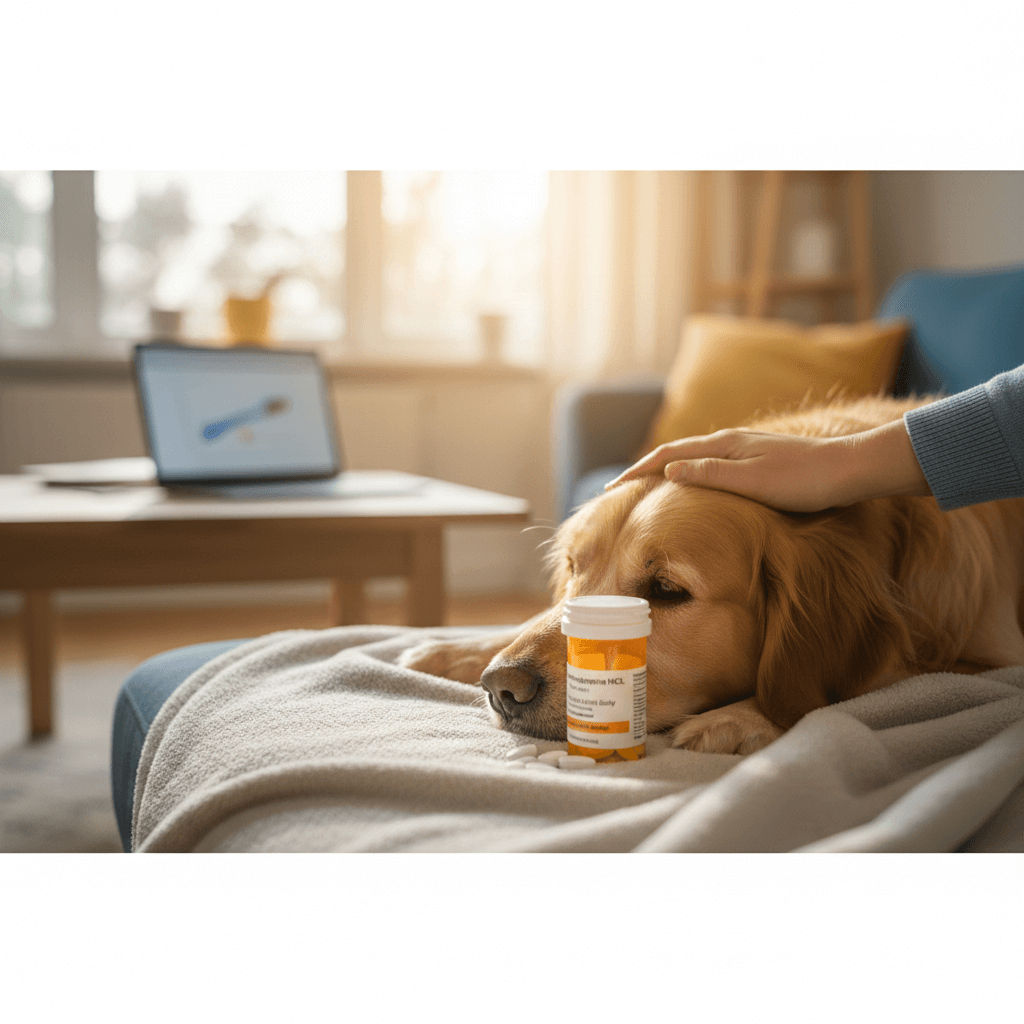Why Is My Dog Biting at Their Butt? Understanding the Behavior
Dogs are known for their quirky behaviors, but when your furry friend starts biting at their butt, it can raise some eyebrows—and concerns. While it might seem amusing or even a bit strange at first, this behavior could indicate something more serious lurking beneath the surface. Whether it’s a simple itch, an underlying health issue, or just plain boredom, understanding why your dog is engaging in this behavior is key to ensuring their well-being. In this blog post, we’ll dive into the reasons behind this peculiar habit, explore potential causes, and provide practical tips to help you address it effectively.
Common Reasons Why Dogs Bite at Their Butt
Before jumping to conclusions, it’s important to recognize that there are several common explanations for why your dog might be biting at their rear end. Below, we’ve compiled a list of potential causes to help you narrow down the source of the problem.
Fleas or Ticks
Fleas and ticks are notorious for causing irritation and discomfort. If your dog is scratching or biting at their butt, these pesky parasites could be the culprits.Allergies
Just like humans, dogs can suffer from allergies. Environmental allergens, food sensitivities, or even seasonal changes can lead to itchy skin, prompting excessive biting.Anal Gland Issues
Dogs have anal glands that can become impacted or infected, leading to discomfort and frequent licking or biting around the area.Skin Infections
Bacterial or fungal infections can cause localized itching and irritation, making your dog focus on their rear end.Dry Skin
Dry skin due to weather conditions or poor grooming habits can also result in itchiness, especially around sensitive areas like the butt.
Understanding these common triggers is the first step toward addressing your dog’s behavior. By identifying the root cause, you can take appropriate action to alleviate their discomfort.
Signs That Your Dog Needs Veterinary Attention
While occasional butt-biting may not be a cause for alarm, certain signs indicate that professional help is necessary. Here’s what to look out for if your dog’s behavior seems excessive or persistent.
Redness or Swelling
Visible redness or swelling around the anal area could signal an infection or injury that requires prompt treatment.Excessive Licking or Chewing
If your dog spends hours obsessively licking or chewing at their butt, it’s time to consult a vet.Scooting Across the Floor
Dogs often scoot when they’re experiencing discomfort, which could point to anal gland problems or other issues.Unusual Odor
A strong, unpleasant smell coming from your dog’s rear end might indicate an infection or impacted anal glands.Behavioral Changes
Sudden changes in behavior, such as lethargy or aggression, alongside butt-biting, could signify a deeper health concern.
If you notice any of these symptoms, don’t hesitate to seek veterinary advice. Early intervention can prevent minor issues from escalating into major problems.
Check this guide 👉Why Do Dogs Stretch? Best 7 Behavior Tips!
Check this guide 👉Why Does My Dog Rest His Head on Me When He Sleeps? Best 7 Tips
Check this guide 👉Why Does My Dog Hide Under the Bed? Best 7 Behavior Tips!

Potential Causes | Possible Solutions |
|---|---|
Fleas or Ticks | Use flea/tick prevention products |
Allergies | Consult a vet for allergy testing |
Anal Gland Issues | Schedule a professional gland expression |
Skin Infections | Administer prescribed medication |
Dry Skin | Improve grooming routine and moisturize |
How to Prevent Excessive Butt-Biting in Dogs
Preventing your dog from biting at their butt involves proactive measures and consistent care. Here are some strategies to keep your pup comfortable and healthy.
Regular Grooming
Keeping your dog’s coat clean and free of mats reduces the risk of skin irritation and parasite infestations.Balanced Diet
Feeding your dog high-quality food supports overall health and minimizes the likelihood of food-related allergies.Flea and Tick Prevention
Invest in reliable flea and tick prevention methods to protect your dog from these irritating pests.Exercise and Mental Stimulation
Providing ample physical activity and mental challenges can redirect your dog’s energy away from obsessive behaviors.Routine Vet Check-Ups
Regular veterinary visits allow for early detection of health issues before they escalate.
By incorporating these practices into your dog’s daily routine, you can significantly reduce the chances of them developing unhealthy habits like excessive butt-biting.
Natural Remedies to Soothe Your Dog’s Itchiness
If your dog’s butt-biting stems from mild irritation rather than a severe medical condition, natural remedies can offer relief. Consider trying the following options under veterinary guidance.
Coconut Oil
Applying coconut oil to irritated areas can moisturize the skin and reduce inflammation naturally.Oatmeal Baths
Oatmeal-based shampoos or DIY baths can soothe itchy skin and provide temporary relief.Apple Cider Vinegar Spray
A diluted apple cider vinegar spray acts as a natural antiseptic and helps deter fleas.Aloe Vera Gel
Pure aloe vera gel can calm irritated skin without causing further irritation.Probiotics
Adding probiotics to your dog’s diet promotes gut health, which can indirectly improve skin conditions.
While these remedies can be effective, always consult your veterinarian before introducing new treatments to ensure they’re safe for your pet.
Environmental Factors That May Trigger Butt-Biting
Sometimes, the environment your dog lives in can play a significant role in their behavior, including butt-biting. Identifying and addressing these external factors can help reduce or eliminate the issue altogether.
Exposure to Harsh Chemicals
Cleaning products or pesticides around the house can irritate your dog’s skin, leading to excessive biting or licking.Seasonal Changes
Cold, dry winters or humid summers can affect your dog’s skin health, making them more prone to itching.Dust and Pollen
High levels of dust or pollen in your home can trigger allergies, causing discomfort in sensitive areas like the butt.
By minimizing your dog’s exposure to environmental irritants, you can create a safer and more comfortable living space for them. Small changes in their surroundings can make a big difference in their overall well-being.
Behavioral Triggers Behind Excessive Butt-Biting
Not all cases of butt-biting are linked to physical issues; sometimes, behavioral factors come into play. Understanding these triggers can help you address the root cause effectively.
Boredom or Lack of Stimulation
Dogs often resort to repetitive behaviors like butt-biting when they don’t have enough mental or physical stimulation.Separation Anxiety
Dogs suffering from separation anxiety may engage in self-soothing behaviors, such as licking or biting their rear end.Attention-Seeking Behavior
If your dog notices that butt-biting gets your attention, they might continue doing it as a way to interact with you.
Addressing behavioral triggers involves providing your dog with structured routines, plenty of playtime, and positive reinforcement. By fulfilling their emotional needs, you can curb unwanted behaviors.
Dietary Adjustments to Reduce Itchiness and Discomfort
What your dog eats can directly impact their skin health and overall comfort. Making thoughtful dietary adjustments can alleviate symptoms that contribute to butt-biting.
Omega-3 Fatty Acids
Foods rich in omega-3 fatty acids, like fish oil, promote healthy skin and reduce inflammation.Limited Ingredient Diets
Switching to a limited ingredient diet can help identify and eliminate potential food allergens.Hydration
Ensuring your dog drinks enough water keeps their skin hydrated and less prone to dryness or irritation.Avoiding Artificial Additives
Processed foods with artificial colors or preservatives can exacerbate skin issues in some dogs.Protein Quality
High-quality protein sources provide essential nutrients that support skin and coat health.
By focusing on a balanced, nutrient-rich diet, you can improve your dog’s skin condition and reduce the urge to bite at their butt. Proper nutrition is a cornerstone of long-term health and happiness for your furry friend.
Frequently Asked Questions About Dog Butt-Biting
Is it normal for my dog to bite their butt occasionally?
Yes, occasional butt-biting is usually harmless and may simply indicate mild itchiness or curiosity. However, frequent or intense biting warrants investigation.
Can stress cause my dog to bite their butt?
Absolutely. Stress or anxiety can manifest through compulsive behaviors, including excessive licking or biting.
How do I know if my dog has fleas?
Look for tiny black specks (flea dirt) in their fur, excessive scratching, or visible fleas during grooming sessions.
What should I do if my dog’s anal glands are impacted?
Contact your veterinarian immediately. They can safely express the glands and provide guidance on preventing future issues.
Are there long-term risks associated with untreated butt-biting?
Yes, untreated causes like infections or allergies can worsen over time, potentially leading to chronic pain or behavioral problems.
Wrapping Up: Addressing Dog Butt-Biting Effectively
Understanding why your dog bites at their butt is crucial for maintaining their health and happiness. From identifying common causes to implementing preventive measures, every step you take brings you closer to resolving this behavior. Remember, while occasional butt-biting is normal, persistent or aggressive actions require attention. By staying vigilant and seeking professional advice when needed, you can ensure your furry companion remains comfortable and content. After all, a happy dog means a happy home!
How Cats Develop Lymphoma: Best 7 Expert Tips! – Learn about causes, symptoms, and prevention to protect your cat from this common cancer.
How Dogs Develop Lymphoma: Best 7 Expert Tips! – Learn causes, symptoms, and prevention strategies to protect your dog from this common cancer.
Diphenhydramine Safe for Dogs? Best 7 Expert Tips! – Learn proper dosing, uses, and precautions to keep your dog safe while using Benadryl.
Is Milk in Cat Food Safe? Best 7 Expert Tips! – Discover the truth about milk in cat food, its risks, and how to keep your feline healthy and happy.





